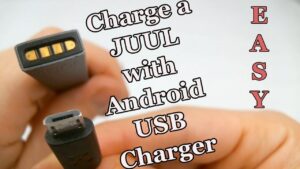Will an FM transmitter drain your car battery? This is a common concern among car owners who love to play their favorite tunes wirelessly. The good news is that, with the right precautions, you can enjoy your FM transmitter without worrying about a dead battery. In this article, we’ll explore how FM transmitters work, their power requirements, and some practical tips to ensure your car battery stays charged. So, if you’ve ever wondered, “Will FM transmitter drain a car battery?” read on to find out the answer and keep the music flowing without any worries.
Will FM Transmitter Drain a Car Battery?
Introduction
FM transmitters have become popular accessories for car owners, allowing them to play their favorite music through their car stereo system. These devices offer a convenient solution for connecting portable audio devices, such as smartphones or MP3 players, to the car’s speakers without the need for complicated installations. However, one common concern among car owners is whether using an FM transmitter can drain their car battery. In this article, we will explore this topic in detail and provide you with the information you need to understand the potential impact of an FM transmitter on your car battery.
Understanding FM Transmitters
To grasp the potential impact of FM transmitters on car batteries, let’s first understand how these devices work. FM transmitters essentially convert audio signals from your portable device into FM radio signals. These FM radio signals are then picked up by your car’s radio antenna and played through the car’s speakers. The power required for this conversion process is supplied by the car’s electrical system.
Power Consumption of FM Transmitters
FM transmitters typically have low power requirements. They are designed to be energy-efficient, drawing minimal power from your car’s battery. The power consumption of an FM transmitter is usually in the range of 50 to 100 milliwatts, which is significantly lower than other electrical components in your car, such as the headlights or the air conditioning system.
Car Battery Capacity
To determine whether an FM transmitter can drain your car battery, it’s essential to consider the capacity of your car’s battery. Car batteries are designed to provide sufficient power to start the engine and run the various electrical systems in your vehicle. The capacity of a car battery is typically measured in ampere-hours (Ah) or reserve capacity (RC). It represents the amount of charge the battery can deliver over a specified period.
A typical car battery has a capacity ranging from 40 to 100 Ah. The actual battery capacity can vary depending on the vehicle’s make, model, and electrical demands. It’s important to note that car batteries are designed to handle the electrical load of the vehicle’s systems, including accessories like FM transmitters, without significant strain.
Impact of FM Transmitters on Car Batteries
Continuous Use and Standby Mode
When it comes to the impact of FM transmitters on car batteries, two scenarios need to be considered: continuous use and standby mode. Continuous use refers to situations when the FM transmitter is actively transmitting audio signals, while standby mode refers to instances when the FM transmitter is connected but not transmitting any signals.
Continuous Use
During continuous use, FM transmitters draw power from your car’s electrical system to convert audio signals and transmit them. While the power consumption is relatively low, it is continuous as long as the FM transmitter is in use. However, the power draw is typically not significant enough to drain a healthy car battery within normal usage limits.
Standby Mode
In standby mode, FM transmitters consume minimal power as they are not actively transmitting any audio signals. The power draw in standby mode is generally negligible and should not have a noticeable impact on your car battery, even if the FM transmitter is left connected for an extended period.
Factors Affecting Battery Drain
While FM transmitters themselves do not pose a significant risk of draining a car battery, several factors can contribute to battery drain if they are not properly managed. It is important to consider these factors to ensure the optimal performance of your car battery and electrical system.
Age and Condition of the Battery
The age and condition of your car battery play a crucial role in determining its ability to handle additional electrical loads like an FM transmitter. Older or weaker batteries may struggle to keep up with the demands, and the presence of an FM transmitter could potentially contribute to faster battery drain. Regular battery maintenance and replacement, as needed, can help mitigate this risk.
Driving Habits and Usage Patterns
Your driving habits and usage patterns can also impact your car battery’s overall health. Short drives and infrequent vehicle use may not allow your battery enough time to recharge fully. In such cases, even the minimal power draw of an FM transmitter can affect the battery’s charge over time. It is advisable to take longer drives periodically to give your battery an opportunity to recharge fully.
Other Electrical Accessories
It’s essential to consider the cumulative effect of all electrical accessories in your car when evaluating battery drain. If your vehicle already has multiple power-hungry devices, such as high-performance audio systems or aftermarket lighting, the addition of an FM transmitter may contribute to an increased load on the battery. Regularly assess and manage all electrical accessories to ensure optimal battery performance.
Tips to Minimize Battery Drain
While the impact of an FM transmitter on your car battery is generally minimal, you can take additional measures to minimize any potential drain and ensure the longevity of your battery. Here are some helpful tips:
- Ensure your car battery is in good condition and consider replacing it if it is older or showing signs of weakness.
- Avoid leaving your FM transmitter switched on when not in use to prevent unnecessary power consumption.
- Disconnect the FM transmitter from the power source when your vehicle is not in use for an extended period.
- Take longer drives periodically to allow your battery to recharge fully.
- Regularly inspect and maintain all electrical components in your vehicle to identify and address any issues promptly.
In conclusion, the impact of an FM transmitter on your car battery is generally minimal. FM transmitters draw low power from your car’s electrical system, and when used responsibly, they should not drain a healthy battery within normal usage limits. However, factors such as the age and condition of your battery, driving habits, and the presence of other electrical accessories can influence battery drain. By following the tips provided, you can mitigate any potential drain and ensure the optimal performance and longevity of your car battery while enjoying the convenience of an FM transmitter.
Frequently Asked Questions
Will using an FM transmitter drain my car battery?
Using an FM transmitter in your car generally does not drain your car battery significantly. However, there are a few factors that can affect your car’s battery life:
How does the power source of the FM transmitter affect battery drain?
The power source of the FM transmitter plays a role in battery drain. If your FM transmitter is powered by the car’s battery directly, it may have a minimal impact on battery life. On the other hand, if the FM transmitter is plugged into the car’s cigarette lighter socket, the power draw can be slightly higher, potentially leading to a slight drain on the battery over time.
Can the FM transmitter drain the car battery when the engine is off?
When the engine is off, and the car is not running, an FM transmitter that is directly connected to the car’s battery is unlikely to drain the battery significantly. However, if the FM transmitter remains plugged into the cigarette lighter socket when the engine is off, it may draw a small amount of power, which over an extended period could contribute to a minor drain on the battery.
Does the battery drain depend on the FM transmitter’s usage time?
The usage time of the FM transmitter itself does not have a substantial impact on the car’s battery drain. Whether the FM transmitter is used continuously for hours or only for short periods, the impact on the battery is generally minimal. However, it is worth noting that if you frequently forget to unplug the FM transmitter when not in use, it could contribute to a small drain on the battery over time.
Can a defective FM transmitter cause excessive battery drain?
In some cases, a defective FM transmitter can cause excessive battery drain. If there is a malfunction or a short circuit within the FM transmitter, it may draw more power than it should, leading to higher battery drain. If you notice an abnormal decrease in your car’s battery life after using an FM transmitter, it is advisable to check for any defects or consider replacing it.
What can I do to minimize battery drain when using an FM transmitter?
To minimize battery drain when using an FM transmitter, you can follow these tips:
- Ensure the FM transmitter is unplugged when not in use.
- If the FM transmitter is connected to the cigarette lighter socket, unplug it when the engine is off.
- Regularly inspect the FM transmitter for any signs of malfunction or damage.
- If possible, choose an FM transmitter with low power consumption.
By following these guidelines, you can minimize the potential impact on your car’s battery when using an FM transmitter.
Final Thoughts
An FM transmitter in a car can potentially drain the car battery if not used correctly. However, with proper usage and care, the impact on the car battery can be minimized. To avoid draining the battery, it is important to ensure that the FM transmitter is turned off when not in use. Additionally, using a quality FM transmitter that is designed to consume less power can also help prevent excessive battery drain. By being mindful of these factors, it is possible to enjoy the benefits of an FM transmitter without worrying about draining the car battery.



